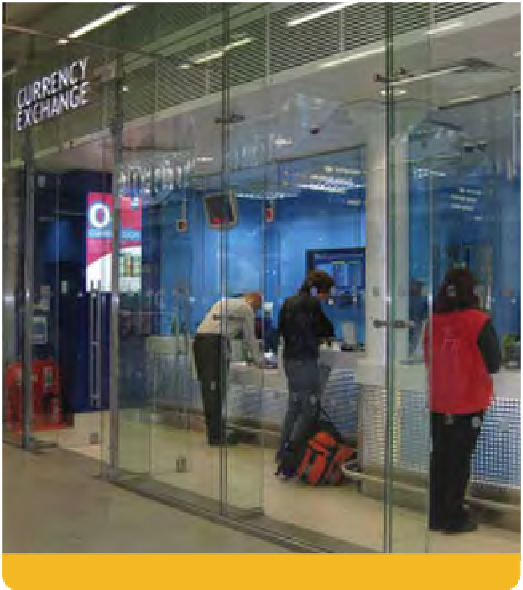Travel Reference
In-Depth Information
Understand the factors af ecting
business travel
SECTION 3
Business travel is a very dynamic industry within the
travel and tourism sector, always having to react to
internal and external factors to remain competitive.
This section explores some of the most important issues
currently facing business travel and the effects these
are having on both clients and the industry itself.
and visits to the UK hav
e
grown at an annual rate of 3.2
per cent.
Business travel visits experienced the biggest falls in
20
0
9, according to the ONS data. They fell by 23 per
c
ent among UK residents going abroad and by 19
per cent among overseas residents coming to the UK.
Fewer people travelling on business in and out of the
UK has had a major impact on the UK business travel
industry.
Factors
A combination of changes in the g
l
obal economy,
advances in technology and other issues such as
terrorism, health epidemics and political unrest, mean
that business travel companies are having to work
harder to keep their b
u
sinesses viable. In the following
sections of this unit
we examine each of these factors
in turn.
Changes in exchange rates also affect business travel
by UK companies. The cost of accommodation and
travel will be higher in countries where the pound is
weak against local currencies. For example, travel to
many countries in the Eurozone has reduced in recent
years as a result of unfavourable exchange rates, while
non-Eurozone countries like Turkey, Egypt and Morocco
have seen their tourist numbers increase.
Global economy
The health of the business travel industry is directly
related to the state of national and global economies.
When economies are in recession, as was the case
globally from 2008 onwards, the demand for business
travel is reduced and business travel agents must
look for cuts in their expenditure in order to survive.
When times are good and economies are growing, for
example in the 1980s, business travel is buoyant and
the industry is able to expand and increase revenue.
Travel data from the Offi ce for National Statistics
(ONS) shows just what happens when the economy is
in recession. Visits abroad by UK residents fell in 2009
at the fastest rate since records began. A total of 58.6
million visits abroad were made, down 15 per cent
from the 69.0 million made in 2008. Visits to the UK
by overseas residents also fell in 2009, but at a slower
rate, down 6.3 per cent to 29.9 million. The falls follow
a long period of overall growth in international travel
to and from the UK. Visits abroad have grown at an
average of 4.0 per cent per year over the past 25 years
Exchange rates have an impact on business travel



























































































































































































































































































































































































































































































































































































































































































































































